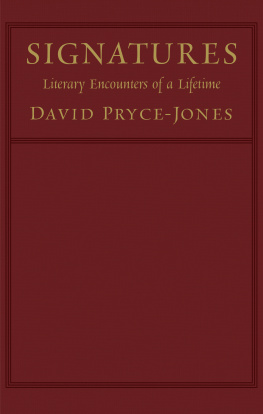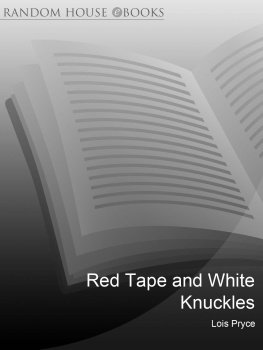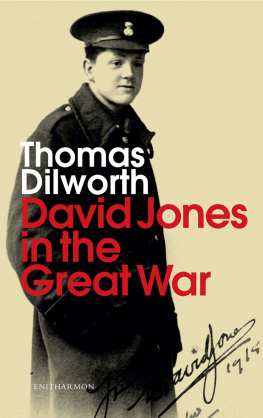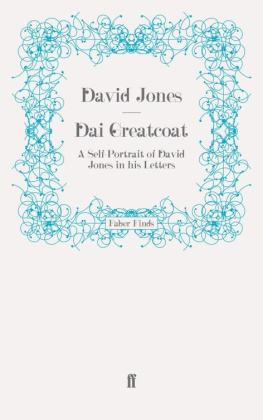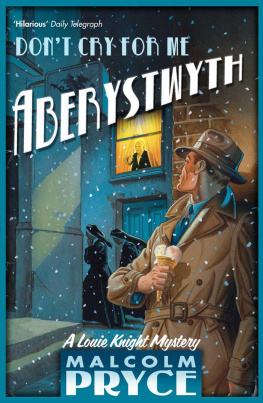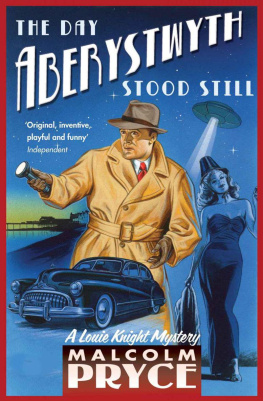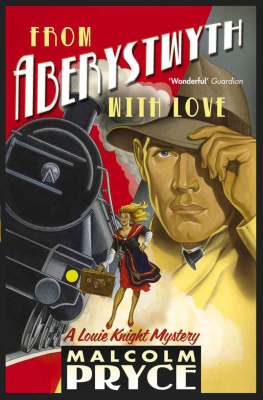David Pryce-Jones - Signatures: Literary Encounters of a Lifetime
Here you can read online David Pryce-Jones - Signatures: Literary Encounters of a Lifetime full text of the book (entire story) in english for free. Download pdf and epub, get meaning, cover and reviews about this ebook. year: 2020, publisher: Encounter Books, genre: Detective and thriller. Description of the work, (preface) as well as reviews are available. Best literature library LitArk.com created for fans of good reading and offers a wide selection of genres:
Romance novel
Science fiction
Adventure
Detective
Science
History
Home and family
Prose
Art
Politics
Computer
Non-fiction
Religion
Business
Children
Humor
Choose a favorite category and find really read worthwhile books. Enjoy immersion in the world of imagination, feel the emotions of the characters or learn something new for yourself, make an fascinating discovery.
- Book:Signatures: Literary Encounters of a Lifetime
- Author:
- Publisher:Encounter Books
- Genre:
- Year:2020
- Rating:5 / 5
- Favourites:Add to favourites
- Your mark:
- 100
- 1
- 2
- 3
- 4
- 5
Signatures: Literary Encounters of a Lifetime: summary, description and annotation
We offer to read an annotation, description, summary or preface (depends on what the author of the book "Signatures: Literary Encounters of a Lifetime" wrote himself). If you haven't found the necessary information about the book — write in the comments, we will try to find it.
Signatures: Literary Encounters of a Lifetime — read online for free the complete book (whole text) full work
Below is the text of the book, divided by pages. System saving the place of the last page read, allows you to conveniently read the book "Signatures: Literary Encounters of a Lifetime" online for free, without having to search again every time where you left off. Put a bookmark, and you can go to the page where you finished reading at any time.
Font size:
Interval:
Bookmark:


SIGNATURES
SIGNATURES
Literary Encounters of a Lifetime
DAVID PRYCE-JONES

Copyright 2020 by David Pryce-Jones
All rights reserved. No part of this publication may be reproduced,
stored in a retrieval system, or transmitted, in any form or by
any means, electronic, mechanical, photocopying, recording,
or otherwise, without the prior written permission of
Encounter Books, 900 Broadway, Suite 601,
New York, New York, 10003.
First American edition published in 2020 by Encounter Books,
an activity of Encounter for Culture and Education, Inc.,
a nonprofit, tax exempt corporation.
Encounter Books website address: www.encounterbooks.com
Manufactured in the United States and printed on
acid-free paper. The paper used in this publication meets
the minimum requirements of ANSI/NISO Z39.481992
(R 1997) (Permanence of Paper).
FIRST AMERICAN EDITION
LIBRARY OF CONGRESS CATALOGING-IN-PUBLICATION DATA
Names: Pryce-Jones, David, 1936 author.
Title: Signatures: literary encounters of a lifetime / David Pryce-Jones.
Other titles: Literary encounters of a lifetime
Description: New York: Encounter Books, 2020. | Includes index. | Summary:
Identifiers: LCCN 2019043396 (print) | LCCN 2019043397 (ebook) |
ISBN 9781641770903 (cloth) | ISBN 9781641770910 (ebook)
Subjects: LCSH: Pryce-Jones, David, 1936 | Pryce-Jones, David, 1936Friends
and associates. | Authors20th centuryBiography. |
Intellectuals20th centuryBiography. | Literature, Modern20th century. | History, Modern20th century. | Civilization, Modern20th century.
Classification: LCC PR6066.R88 Z46 2020 (print) |
LCC PR 6066.R88 (ebook) | DDC 828/.91409dc23
LC record available at https://lccn.loc.gov/2019043396
LC ebook record available at https://lccn.loc.gov/2019043397

CONTENTS
For Alan
19082000
WITH LASTING AFFECTION
DIC NOBIS MARIA QUID VIDISTI IN VIA

PREFACE
T HE CONVENTION IS that if you happen to meet authors and have just bought or acquired a book of theirs, you ask them to sign it. Particularly stuffy authors might refuse but in most cases they feel flattered and duly inscribe your name and theirs on the title page or the flyleaf of the book in question. If the mood is right, they may add with best wishes or something of the sort. At a superficial level, of course, such signatures are only the equivalent of an autograph album. Theres more to it than that, however. Added value perhaps, but association certainly. The human race lives by the stories we tell ourselves about our identity and our purposes, and that signature helps to make the authors story part of the readers story.
Signatures is autobiographical in the sense that Im looking at the story I tell myself about how I have come to be who I am. The story that my parents told of themselves is of course the point of departure. They had started their married life in Meidling, a district of Vienna, in a house built by Gustav Springer, a successful magnate and grandfather of my mother Poppy. By the time I was born in Meidling in 1936, my father Alan Pryce-Jones had published five books. Some who stood round my cradle said, David, thats a lovely Welsh name, and others said, David, thats a lovely Jewish name. Alan liked to say that my first spoken word was Gorki, as though I were already picking up on Russian writers.
My generation in Europe had to deal with the fact that the whole continent had first almost gone Nazi and then almost gone Soviet Communist. By 1940, the Gestapo had expropriated Meidling, and Austria was occupied enemy territory. Nothing was ever again going to be what it had been. A good many of the authors who signed a book of theirs for me are survivors from the Age of Dictators, and I wanted to know what theyd been through and how theyd survived.
After the war, Alan became editor of the Times Literary Supplement, and in one or two rooms of the house books piled up on the floor waiting to be read. Authors sent him their books for review, quite often writing something relevant and revealing on the title page. He introduced me to people I would never have met otherwise and by now these signed copies seem to me like tickets of admission to the select company attempting to make sense of this world.

SIGNATURES

MAHMUD ABU SHILBAYAH
La salaam
ARABIC, NOT DATED
A FTER THE SIX DAY WAR of June 1967 was over, I spent a lot of A time on the West Bank and in Gaza. For the previous twenty years, British Palestine had been divided between Israel, Egypt and Jordan. Now that the parts were re-united under Israeli jurisdiction, my assumption was that the moment was bound to have come for a treaty settling the relationship between Israelis and the Arabs. Moshe Dayan, the Minister of Defence, announced that he was waiting for a telephone call. Flippant though it was, the remark reveals the value system that has been operating for a long time throughout the Western world to give political reality to the conclusions of the battlefield. Victor and vanquished decide how to conduct themselves, the one reacting to the propositions of the other in a process akin to bargaining that is strictly rational and inclining to democracy. Dayans telephone did not ring because Arabs have a value system that is not just different but totally incompatible, and it too has been in operation a long time. The high and mighty as well as the poor and humble have to gain honor and avoid shame because these values determine what people will think of them. Defeat at the hands of Jews is a shame so absolute that only military success is able to wipe it away. What is at issue here is status, something personal and irrational, not open to measurement or bargaining, and inclining to dictatorship.
Arabs of course have ways of making peace. Harold Ingrams, a British official in the days of empire, describes in his memoir Arabia and the Isles his career of treaty-making between warring Arab tribes, a process so delicate and personal that it might well last several generations. Those involved have to be men of experience and authority, ceaselessly attentive to the imperatives of shame and honor for victors and vanquished alike. If they were to conduct themselves according to the Israeli value system, they would have become self-declared losers, disgraced by the shame of it and immediately rejected by their people.
The 1967 war had left the inhabitants of the West Bank and Gaza pretty much in a state of shock. Fearing the worst, more than a hundred thousand of them had fled their homes and were refugees in Jordan. Some houses had been wantonly destroyed in the small town of Qalqilya, but otherwise the war had been almost a formality and there was nothing to fear. It was safe to go anywhere and to talk to anyone.
Next pageFont size:
Interval:
Bookmark:
Similar books «Signatures: Literary Encounters of a Lifetime»
Look at similar books to Signatures: Literary Encounters of a Lifetime. We have selected literature similar in name and meaning in the hope of providing readers with more options to find new, interesting, not yet read works.
Discussion, reviews of the book Signatures: Literary Encounters of a Lifetime and just readers' own opinions. Leave your comments, write what you think about the work, its meaning or the main characters. Specify what exactly you liked and what you didn't like, and why you think so.

